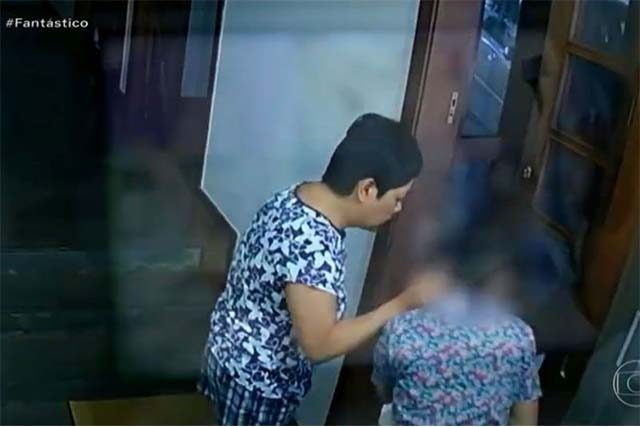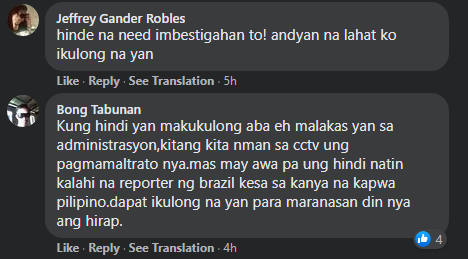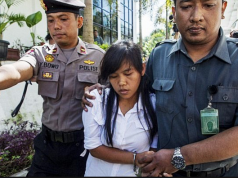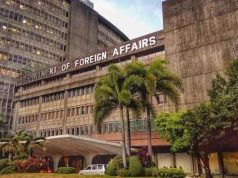
The household helper who was allegedly maltreated by the Philippine ambassador to Brazil is set to testify against the official.
A footage showing Philippine Ambassador to Brazil Marichu Mauro mistreating her house helper, who was identified as Leonila de Ocampo, circulated around social media this week.
The video was initially aired by Brazil-based television channel GloboNews and then picked up by local mainstream media outlets.
Hours after the video was released, the Department of Foreign Affairs ordered Mauro to return home to explain her actions against one of her staff.
President Rodrigo Duterte also later gave the green light for DFA to pursue the probe on the allegations against Mauro.
The approval was needed because Duterte was the appointing authority for ambassadors like Mauro.
Following the approval, Foreign Affairs Secretary Teddy Locsin Jr. said that he formed a fact-finding team for the incident.
This team comprises Consul General Ezzedin Tago, who is assigned in Sydney, Australia, Ambassador to the Netherlands Jaime Victor Ledda, DFA executives Narciso Castañeda and lawyer Ihna Alyssa Marie Santos of the agency’s human resources unit.
Based on the procedures, Locsin explained that the team will first submit their findings to the Board of Foreign Service Administration.
He will then submit their final recommendations to the president for the subsequent actions on the case.
Household helper’s tell-all soon
In an interview with CNN’s “The Source” on October 30, Sen. Juan Miguel Zubiri said that De Ocampo’s family reached out to his office for help.
As of writing, De Ocampo has returned to her home in Cotabato while Mauro is expected to be back in the country on November 2 to face investigation by the DFA.
De Ocampo’s camp said she will soon disclose all the supposed abuses she received from Mauro.
“The daughter spoke to us and she told us that her mom is in better spirits now. She is happy that she’s home safe and sound, and she is very willing to give a statement to the Department of Foreign Affairs and an affidavit to itemize and put on record all the abuses done to her by Ambassador Mauro,” Zubiri said.
Zubiri also said that Mauro was already caught “red-handed” because of the CCTV footage.
“She was caught red-handed. It’s horrible, no Filipino should go through this maltreatment,” the senator said.
In comments and posts on Facebook and Twitter, Filipinos expressed their support for De Ocampo and argued that the videos were already strong evidence to hold Mauro accountable.

Foreign service commitment
Blogger Tony Cruz, meanwhile, recalled her responsibilities as a Filipino diplomat in Brazil and stressed her supposed failure for fulfilling them.
“Like any ambassador, Marichu Mauro’s two tasks were to promote our interests to protect our citizens. She brought shame to us, and instead of being the protector, she was the tormentor of an overseas Filipino worker. Naked abuse of power, and a terrible betrayal,” Cruz said.
Another user brought up her previous position on women’s rights during DFA’s celebration of the National Women’s Month in 2019.
In her statement then, Mauro stated that “joining the DFA is not just a job, but a commitment to the Filipino people.”
"Foreign Service is not just a job, but a commitment to the Filipino people." ~ Marichu Mauro
Also Mauro: https://t.co/8yH2vHfnbs pic.twitter.com/vRnDg7UF39
— Papa.Ojie (@TataOjie) October 26, 2020
As a government official, Mauro can be held liable for violating Republic Act No. 6713 or the Code of Conduct and Ethical Standards for Public Officials and Employees, wherein part of Section 4 stated that:
“They must act with justness and sincerity and shall not discriminate against anyone, especially the poor and the underprivileged. They shall at all times respect the rights of others, and shall refrain from doing acts contrary to law, good morals, good customs, public policy, public order, public safety and public interest.
Moreover, Mauro could also be liable for violating De Ocampo’s rights under RA 10361 or the Kasambahay Law.
The law protects the rights of domestic workers and helpers “against abuse, harassment, violence, economic exploitation and performance of work that is hazardous to their physical and mental health.”









